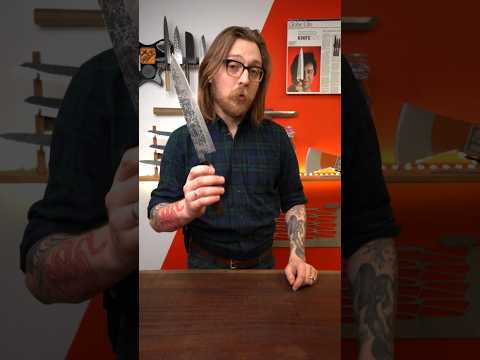
1cf7a103c79d76dd99a71f8b2027d8bf
Having a sharp knife is essential for any kitchen. Whether you’re a professional chef or a home cook, having a sharp knife is key to making sure your food is cut properly and safely. But keeping your knives sharp and rust-free can be a challenge. That’s where knife blade oil comes in. In this article, we’ll discuss the importance of using knife blade oil to keep your blades sharp and rust-free. We’ll also provide tips on how to use it properly and the best types of oil to use. So read on to learn more about how to keep your knives in top condition.
Should you oil knife blades
Knives are essential tools in the kitchen, and it is important to keep them in good condition. Many people wonder if they should oil their knife blades to keep them sharp and prevent rust. The answer is yes, you should oil your knife blades, but it is important to use the right type of oil.
Types of Oil
The best type of oil to use on knife blades is mineral oil. This type of oil is food-safe and will not go rancid. It is also odorless and tasteless, so it won’t affect the flavor of food. Other types of oil, such as vegetable oil, can go rancid and can affect the flavor of food.
How to Oil Knife Blades
To oil your knife blades, you will need a soft cloth and some mineral oil. Start by wiping the blade with the cloth to remove any dirt or debris. Then, apply a few drops of mineral oil to the blade and spread it evenly with the cloth. Allow the oil to sit on the blade for a few minutes, then wipe off any excess oil with the cloth.
Benefits of Oiling Knife Blades
Oiling your knife blades has several benefits. It helps to prevent rust and corrosion, which can damage the blade and make it less effective. It also helps to keep the blade sharp by lubricating it and preventing it from becoming dull. Finally, it helps to protect the blade from moisture, which can cause it to rust.
Oiling your knife blades is an important part of keeping them in good condition. It is important to use the right type of oil and to apply it correctly. With regular oiling, your knife blades will stay sharp and rust-free for many years to come.
What is the best oil for knife steel
Knife steel is a type of metal alloy that is used to make knives. It is a combination of iron and other elements, such as carbon, chromium, molybdenum, and vanadium. The type of steel used in a knife will determine its strength, durability, and sharpness. To keep a knife in good condition, it is important to use the right oil to protect the steel from corrosion and wear.
Mineral oil is one of the most popular oils for knife steel. It is a clear, odorless oil that is derived from petroleum. It is a good choice for protecting knives from rust and corrosion, as it forms a barrier between the steel and the environment. Mineral oil is also relatively inexpensive and easy to find.
Tung oil is another popular choice for knife steel. It is derived from the nut of the tung tree and is known for its ability to penetrate deep into the steel. This helps to protect the steel from corrosion and wear. Tung oil is also food-safe, making it a good choice for kitchen knives.
Flaxseed oil is another option for protecting knife steel.
It is derived from the seeds of the flax plant and is known for its ability to penetrate deep into the steel. It is also food-safe and can help to protect the steel from corrosion and wear. Flaxseed oil is more expensive than mineral oil and tung oil, but it is a good choice for those looking for a natural oil.
No matter which oil you choose, it is important to apply it regularly to keep your knife in good condition. Make sure to clean the blade before applying the oil, and use a soft cloth to rub it in. This will help to ensure that the oil penetrates deep into the steel and provides the best protection.
What is the purpose of oiling a blade
Oiling a blade is an important part of blade maintenance and is essential for keeping it in good condition. Oiling a blade helps to protect it from rust and corrosion, and also helps to keep it sharp. It also helps to reduce friction and wear on the blade, making it last longer.
Rust and Corrosion – Oiling a blade helps to protect it from rust and corrosion, which can cause damage to the blade over time. Oiling the blade helps to create a barrier between the metal and the environment, preventing moisture and other elements from coming into contact with the blade and causing damage.
Sharpness – Oiling a blade helps to keep it sharp by reducing friction and wear on the blade. Oiling the blade helps to reduce the amount of wear and tear on the blade, which can cause it to become dull over time.
Friction and Wear – Oiling a blade helps to reduce friction and wear on the blade, which can cause it to become dull over time. Oiling the blade helps to reduce the amount of friction and wear on the blade, making it last longer.
Oiling a blade is an important part of blade maintenance and is essential for keeping it in good condition. It helps to protect the blade from rust and corrosion, and also helps to keep it sharp. It also helps to reduce friction and wear on the blade, making it last longer.
What is the best oil for pocket knives
Pocket knives are a great tool to have on hand for a variety of tasks. Whether you’re using it for camping, fishing, or everyday tasks, it’s important to keep your pocket knife in good condition. To do this, you need to use the right oil to lubricate and protect the blade.
The best oil for pocket knives is a light mineral oil. Mineral oil is a clear, odorless oil that is safe to use on knives. It is also non-toxic and won’t damage the blade or handle. Mineral oil is also very affordable and easy to find.
Another option is synthetic oil, which is designed specifically for knives. Synthetic oil is more expensive than mineral oil, but it is also more effective. It is designed to protect the blade from corrosion and wear, and it also helps to keep the blade sharp.
When applying oil to your pocket knife, it’s important to use a clean cloth or brush. You should also make sure to apply the oil evenly and not over-apply it. Too much oil can cause the blade to become sticky and difficult to use.
It’s also important to remember to clean and oil your pocket knife regularly. This will help to keep it in good condition and ensure that it will last for many years.
In conclusion, the best oil for pocket knives is a light mineral oil or synthetic oil. Both of these oils are safe to use and will help to keep your pocket knife in good condition. Be sure to apply the oil evenly and clean and oil your pocket knife regularly to ensure it lasts for many years.
We hope this article has been helpful in understanding the importance of knife blade oil and how to use it. Keeping your blades sharp and rust-free is essential for a safe and enjoyable cooking experience. Goodbye and happy cooking!















